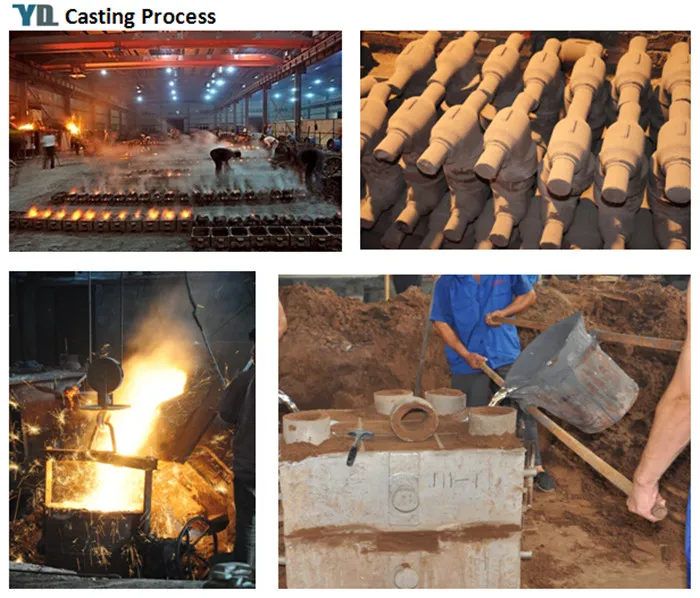Mobile:+86-311-808-126-83
Email:info@ydcastings.com
Design and Optimization of Impellers for Enhanced Performance in Motor Cooling Fan Applications
The Importance of Motor Cooling Fan Impellers
In modern machinery and automotive design, effective cooling systems are essential for optimal performance and longevity. One crucial component of these cooling systems is the motor cooling fan impeller. The impeller plays a pivotal role in maintaining appropriate operating temperatures within an engine or mechanical system by enhancing air circulation around the motor. This article delves into the purpose, design, and significance of motor cooling fan impellers.
Understanding the Role of the Impeller
At its core, a motor cooling fan impeller is designed to move air efficiently. When a motor operates, it generates heat due to the friction between moving parts and the energy consumed during operation. Absorbent cooling systems are vital in dissipating this heat; without them, motors can overheat, leading to diminished performance, potential breakdowns, and a significant reduction in equipment lifespan.
The impeller achieves cooling primarily by drawing in air and directing it across critical components, such as the motor windings and the housing. This process helps to lower the temperature of these elements, ensuring that they remain within safe operating limits.
Design Considerations
The design of a motor cooling fan impeller is critical to its performance. Various factors must be taken into account to optimize its efficiency
1. Blade Shape and Configuration Impellers can have different blade designs, including backward, forward, or mixed flow configurations. Each design has its unique advantages in terms of airflow direction and pressure generated. Engineers often select the appropriate type based on specific cooling needs and space limitations.
2. Material Selection The choice of materials for impeler construction greatly influences durability and weight. Common materials include plastic, aluminum, and composites, each providing different balances of strength, weight, and thermal conductivity. Remember that the impeller will experience significant stress during operation, necessitating robust and heat-resistant materials.
motor cooling fan impeller

3. Size and Speed The size of the impeller and its rotational speed play crucial roles in how much air it can move. Larger or faster rotating impellers can generate more airflow, but they also consume more energy. Therefore, achieving a balance between size, speed, and energy efficiency is essential.
The Advantages of Efficient Cooling
Having an efficient motor cooling fan impeller is not simply about maintaining temperature; it translates into broader benefits for machinery and vehicles. Here are a few advantages of incorporating an effective cooling system
1. Increased Reliability By preventing the motor from overheating, impellers help maintain the reliability of the equipment. This is particularly vital in critical applications, such as automotive engines, where failure can lead to safety hazards.
2. Extended Lifespan Effective cooling reduces wear and tear on motor components, leading to longer service life. By investing in quality impeller designs, manufacturers can minimize maintenance costs and downtime.
3. Enhanced Performance Motors running at ideal temperatures can perform more efficiently. When overheating is mitigated, motors can operate at their peak performance levels, translating to better energy efficiency and decreased energy consumption.
Conclusion
In summary, the motor cooling fan impeller plays an essential role in the functionality and longevity of machinery and automotive systems. Its design directly influences the efficiency of cooling systems, contributing to the overall reliability and performance of motors. As technology advances, continued innovations in impeller design and materials will be significant in pushing the boundaries of what mechanical systems can achieve. The focus on efficient cooling solutions will remain a priority for engineers and manufacturers aiming to enhance the performance of their products in an increasingly competitive landscape.
-
Why Is Choosing the Right Motor Housing Critical for Engine Performance?NewsJul.18,2025
-
Which Impeller Types Best Optimize Your Pump’s Efficiency?NewsJul.18,2025
-
Optimize Maintenance Efficiency with Durable Oil Catch SolutionsNewsJul.18,2025
-
Maximize Pump Performance with Precision-Engineered ComponentsNewsJul.18,2025
-
Elevate Industrial Flow Systems with Precision-Engineered ComponentsNewsJul.18,2025
-
Boost Durability and Functionality with Precision Power CastingsNewsJul.18,2025











